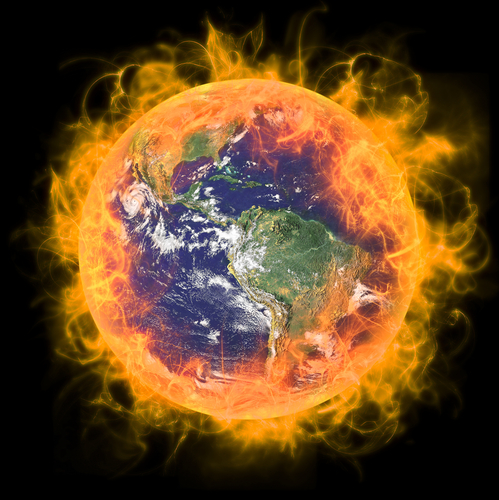Earth Continues 11-Month Hot Streak with a Record-Breaking March, Report Finds

With record-breaking temperatures, 2016 is on pace to be the hottest year on record.
The first three months of 2016 each passed records set in 2015, with March being the 11th consecutive month to surpass its respective record, the longest streak since the National Oceanic and Atmospheric Administration began keeping records in 1880, according to NOAA's National Climatic Data Center's monthly global climate report.
"Overall, the nine highest monthly temperature departures in the record have all occurred in the past nine months," the report stated.
January, February and March of 2016 were the warmest such period on record across the Earth's land and ocean surfaces at about 2.07 degrees Fahrenheit above the average for the 20th century, which was 51.4 degrees.
"Record warmth was observed in various areas around the globe," the report stated.
While strong El Niño conditions in North America are partly to blame for the warmer climate, the system's conditions weakened considerably in during March, the NOAA said.
"When you have that type of phenomenon, it tends to increase temperatures on a global scale," NOAA climate scientist Jessica Blunden, who co-authored the report, told ABC News.
The recent record-breaking temperatures are a result of both El Niño and global warming, Blunden said, citing a similar El Niño system that hit between 1997 and 1998. That system also caused a rise in average temperatures, but about an eighth of a degree less than the current rise,according to Blunden.
Most of Earth's land surfaces were warmer or "much warmer" than average, according to the NOAA, with record warmth notable across eastern Brazil, eastern and central Africa, much of southeastern Asia and large portions of northern and eastern Australia, the report said.
Much of northwestern Canada and Alaska, along with vast regions of northern and western Asia, saw temperatures at least 5 degrees Fahrenheit above their averages from 1981 to 2010, the NOAA said.
In addition, New Zealand, the Kingdom of Bahrain, Denmark,Sweden, Norway, France, the United Kingdom and the Arctic all saw significant warming trends in March, according to the report.
Temperatures will soon ease back into their normal averages,Blunden said, but she added that the problem is all but solved.
"The underlying global warming isn’t going to go away," she said.
World diplomats will gather at the United Nations headquarters this week in New York to sign a climate agreement, which 195 nations committed to late last year to lower greenhouse gas emissions and to help eliminate the worst effects of climate change.
Source: http://abcnews.go.com/International/earth-continues-11-month-hot-streak-record-breaking/story?id=38512398
Image Source: https://sojo.net/sites/default/files/mainimages/blog/shutterstock_65533402.jpg
Vocabulary Words:
1. Streak - (noun) a series of successes or failures,especially in a sport or in gambling
2. Record-breaking - (noun) having achieved a better result or higher level than has ever been achieved before
3. Pace - (noun) the speed at which something happens
4. Consecutive - (adj.) following one after another in a series, without interruption
5. Surpass - (verb) to do or be better than somebody/something
6. Various - (adj.) several different
7. Phenomenon - (noun) a fact or an event in nature or society, especially one that is not fully understood
8. Notable - (adj.) deserving to be noticed or to receive attention important
9. Significant - (adj.) having a particular meaning
10. Diplomat - (noun) a person whose job is to represent his or her country in a foreign country, for example, in an embassy
Discussion Questions:
1. In your opinion, is the extreme heat generated by the summer weather or is it because of global warming? Why do you think so?
2. If temperatures continue to rise, how will our lives be different in the near future?
3.Do you think that extreme heat can affect our health and our way of living? How?
4.Is the environment in a good state in your country?
5.In your country, how do people deal with the summer heat?